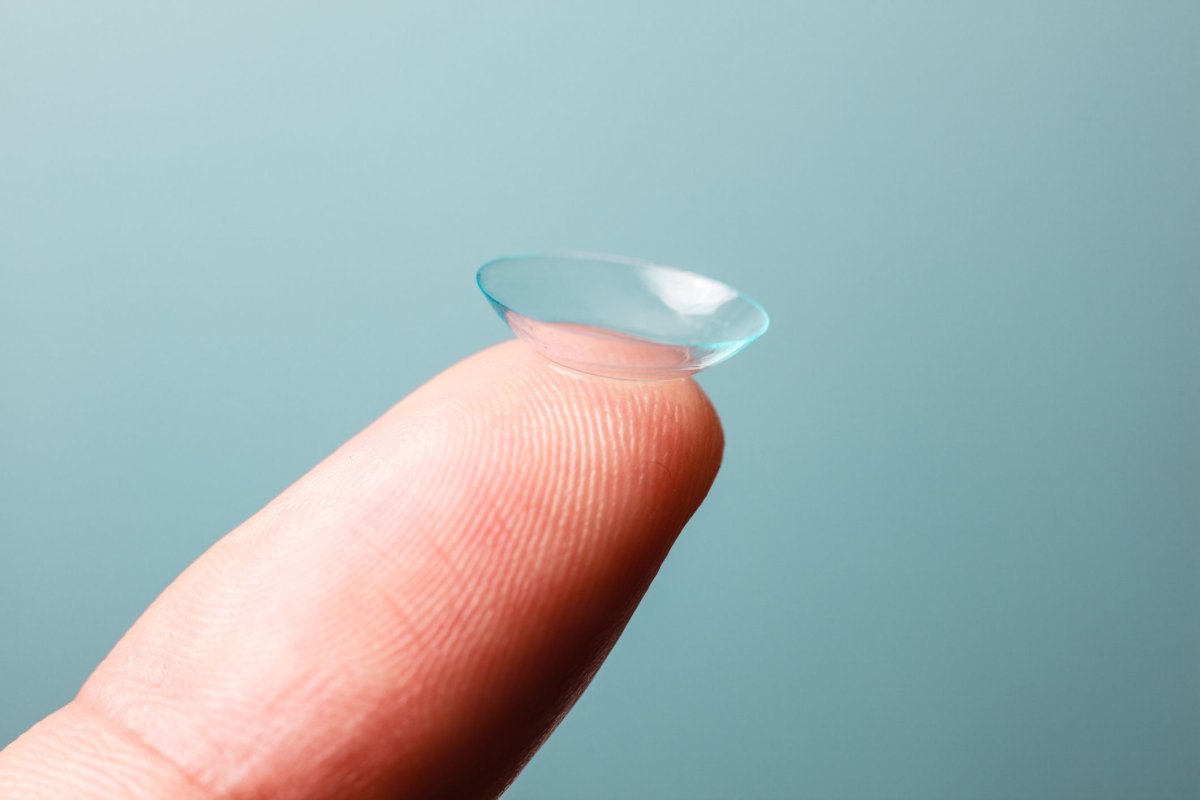Tossing contact lenses down the drain instead of in the trash might save you a few seconds each day, but it's a habit that could being damaging the environment, scientists have warned.
Researchers at Arizona State University surveyed 410 contact lens wearers and found one in five flushed the tiny pieces of plastic down the sink or in the toilet.
Considering that 45 million people in the U.S. wear contact lenses, that amounts to between 1.8 to 3.36 billion being discarded into the water system on average each year, or around 20 to 23 metric tons of wastewater borne plastics, the study authors said. These fragments may in turn contribute to the gyres of plastic which pollute the oceans.
To assess how biodegradable lenses are, the scientists dosed five polymers used to make contact lenses with anaerobic and aerobic microorganisms found in biological wastewater treatment plants. The microbes were found to change the surface of contact lenses, helping them to disintegrate.

The team also studied 13 contact lens brands made from nine different forms of plastic polymers. Most lenses appeared to head to wastewater treatment facilities, where they turned into microplastics and collected in sewage sludge. As a result, a pair of contact lenses can be found, on average, in every two pounds of wastewater sludge.
Varun Kelkar, a researcher on the study presented at the 256th National Meeting and Exposition of the American Chemical Society in Boston, running from August 19 to 23, said in a statement: "When the lens plastic loses some of its structural strength, it will break down physically. This leads to smaller plastic particles, which ultimately will lead to the formation of microplastics."
Rolf Halden, co-author of the study and director of the Biodesign Institute's Center for Environmental Health Engineering at ASU, told Newsweek that 55 percent of sewage sludge, or biosolids, are applied to farm land and used to condition soil, meaning these macro and microplastics can enter ecosystems, triggering negative side effects not yet fully understood.
"Another mechanism for plastic lenses to enter rivers and lakes are sewer overflows, a common event during rain storms in the U.S., particularly on the East Coast, where domestic sewage and storm water are often collected in the same pipe, sometimes overwhelming the treatment plants," he said. "Consumers likely are unaware of the fact that tossing the flimsy lenses into the sink or toilet can pollute land, rivers and the oceans."
Now the researchers have offered new insight into the potential harms of contact lenses on the land, the risks to the aquatic environments are also ripe for investigation, the authors said. Researchers believe the run-off from soils treated with wastewater sludge could pollute surface waters. Pieces of contact lenses could also bypass wastewater treatment facilities and enter surface waters as microplastics, the team suggested.
The dangers of microplastics floating in the ocean were highlighted by the 2015 ban on microbeads. Sea creatures can confuse microplastics for food, meaning they can enter the food chain and eventually into the food humans eat.
The scientists hope contact lens manufacturers will take heed of their findings.
"A simple first step would be for manufacturers to provide on product packaging, information on how to properly dispose of contact lenses, which is simply by placing them in the trash with other solid waste," Halden said.
"A desirable long-term outcome would be to create lenses from polymers that are fine-tuned to be inert during use but labile and degradable when escaping into the environment."
As for members of the public concerned they are polluting the environment, Halden said: "Used plastic lenses ideally should be returned to the manufacturer for recycling along with the polypropylene packaging material and metal lids. Absent of recycling options, lenses should be deposited in the trash, not the sink or toilet."
This article has been updated with comment from Dr. Rolf Halden and background information.
Uncommon Knowledge
Newsweek is committed to challenging conventional wisdom and finding connections in the search for common ground.
Newsweek is committed to challenging conventional wisdom and finding connections in the search for common ground.
About the writer
Kashmira Gander is Deputy Science Editor at Newsweek. Her interests include health, gender, LGBTQIA+ issues, human rights, subcultures, music, and lifestyle. Her ... Read more
To read how Newsweek uses AI as a newsroom tool, Click here.








